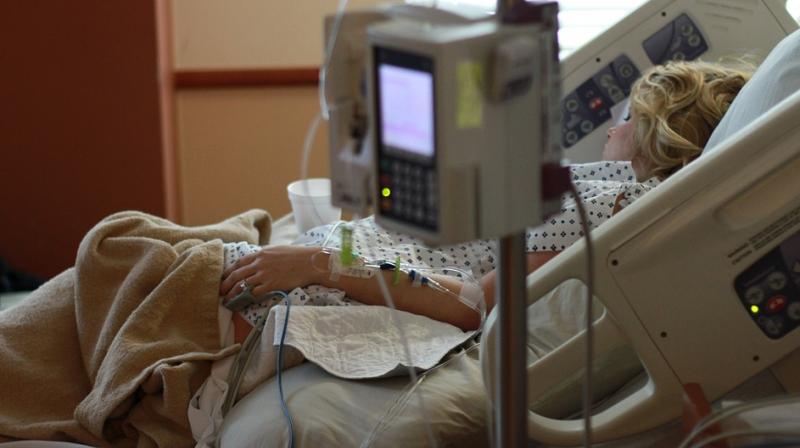SC legalises passive euthanasia: 10 facts you should know
A five-judge Constitution bench of Supreme Court passed the order allowing passive euthanasia with guidelines.

The Supreme Court on Thursday said passive euthanasia is permissible with guidelines.
"Human beings have the right to die with dignity," said the apex court after allowing passive euthanasia.
SC said that "living will" be permitted but with the permission from family members of the person who sought passive euthanasia and also a team of expert doctors who say that the person's revival is practically impossible.
A five-judge Constitution bench of the Supreme Court, headed by Chief Justice of India Dipak Misra passed the order allowing passive euthanasia with guidelines.
Euthanasia definition: It is the termination of someone’s life, when living becomes physically unbearable for someone. Euthanasia is mostly carried out because the person who dies asks for it, but there are cases of euthanasia where a person is not even in a state to make such a request.
While it is called assisted suicide, euthanasia is different. Euthanasia gives enough time to people to prepare for the death, of one’s own or that of a near one.
Here are some things about euthanasia that you should know.
- The term ‘Euthanasia’ comes from the Greek word ‘εá½θανασία’, that means ‘good death’.
- While doctors have to take The Hippocratic Oath --“I will give no deadly medicine to any one if asked, nor suggest any such counsel,” but like abortion, doctors can now ethically perform euthanasia under certain circumstances.
- Out of the 196 countries in the world, only 9 countries had legalised euthanasia or assisted death including Netherlands, Belgium, Colombia, Luxembourg, Switzerland, Germany, Japan, Albania and US. India becomes the 10th country to legalise it. Even in USA, only the states of Washington, Oregon, Vermont, New Mexico and Montana have it legalised.
- Euthanasia can be catagorised into 5 types
- Voluntary Euthanasia – When a competent person makes a voluntary and enduring request to be helped to die.
- Involuntary Euthanasia – To end a person’s life without their knowledge or consent.
- Active Euthanasia – To end a person’s life by using drugs, whether by oneself or with the aid of a physician.
- Passive Euthanasia – To end a person life by not taking the necessary and ordinary action to maintain life, like withdrawing water, food etc.
- Involuntary Euthanasia – To end a person’s life against the will of the person.
- Euthanasia is mostly administered by giving lethal doses of painkiller or other drugs
- Though euthanasia is still illegal in England, King George V was euthanized. The King was suffering from cardio-respiratory failure, and was given a fatal dose of morphine and cocaine in order to hasten his death.
- Despite Euthanasia being generally illegal in India, there is a tradition of forced euthanasia in South India where it is called thalaikoothal.
- It is a Tamil term for “shower” or “oil bath.” Old feeble people are forced to drink fresh cow’s milk until they suffer breathing problems and, eventually, die. This tradition is apparently society approved.
- In 2010 Hrithik Roshan starred in a Bollywood film called Guzaarish, which portrayed euthanasia, opening up a huge debate nation wide.

